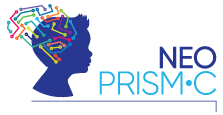Coordination and Management Team
University of Cyprus (UCY)
Project Coordinator
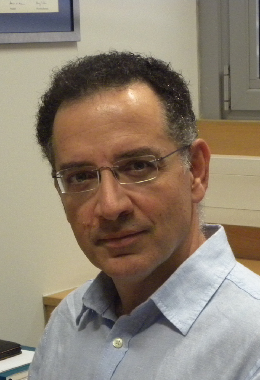
Timothy C. Papadopoulos
University of Cyprus
Timothy C. Papadopoulos, Ph.D. is Professor at the Department of Psychology, University of Cyprus. His research and teaching focus on the study of learning disabilities and their treatment and specifically on (a) various optimal and protective factors for specific learning disorders, focusing on development, cognitive profiles, and pathology, (b) similar factors for the Attention Deficit Hyperactivity Disorder (attention, executive functioning, inhibition, and processing speed) and (c) the development of web-based cognitive remedial programs. He directs the Learning Disabilities Group and he is the Project Coordinator of the Neo-PRISM-C ITN project, funded by the EU (2019-2023), with a total budget of 4M€.
Project Vice – Coordinator
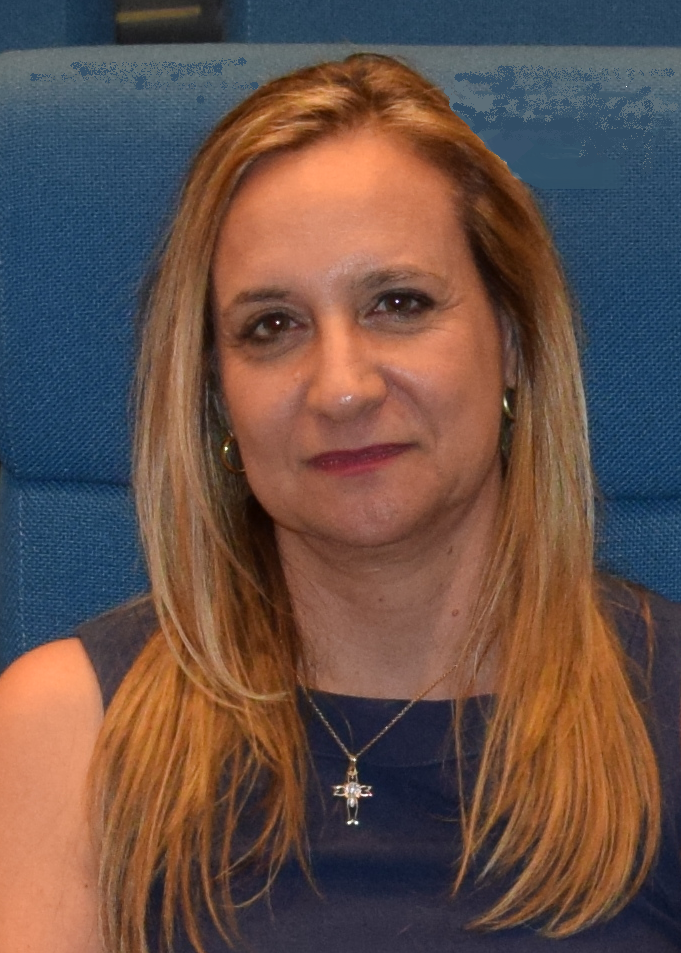
Georgia Panayiotou
University of Cyprus
Georgia Panayiotou, Ph.D. is the Chair and Professor of the Department of Psychology, University of Cyprus. Her research interests are in the domain of Emotion and its role in the etiology and maintenance of psychopathology. She studies topics like differences in fear reactivity between groups with different pathologies, emotion regulation and coping and Anxiety and Affective Disorders Emotional processes in antisocial behaviors such a risky driving and childhood aggression. She directs the Clinical Psychology and Psychophysiology Lab and she is a founding member of the Center for Applied Neuroscience. She is a licensed clinical psychologist in Cyprus and she is the Vice-Coordinator of the Neo-PRISM-C project.
Project Manager

Potheini Vaiouli
University of Cyprus
Potheini Vaiouli, Ph.D., works as a Special Research Scientist at the Center for Applied Neuroscience (CAN), the University of Cyprus since October 2020 and she is the Project Administration Manager of the Neo-PRISM-C project. Her research interests converge around social, emotional, and academic growth of young children with autism and other neurodevelopmental disabilities and her work has been published in national and international peer-reviewed journals. Potheini has extensive experience participating in EU and US multi-site, interdisciplinary research projects (Children’s School Success, 2010-2014, IES, Federal grant; Interfaces, 2015-2018, Creative Europe grant; Swedish Erasmus Plus National Agency, 2018-2021, Key Action 2). In her role, she has collaborated with international research teams on the implementation and management of the projects including the design and implementation of training activities, the coordination and organization of project-related events, and the dissemination of the project outcomes. Furthermore, Potheini’s work experience includes more than ten years of teaching at the undergraduate and graduate level as well as clinical work with young children with disabilities and their families.
Past Project Manager
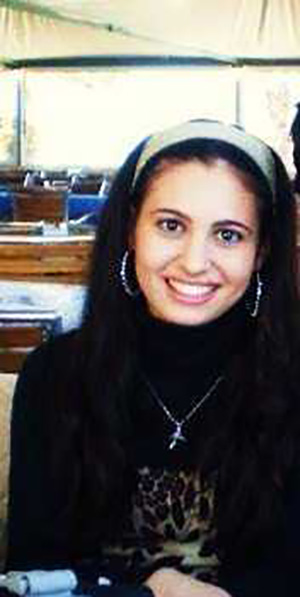
Afroditi Stefanou
University of Cyprus
Worked as a Project Manager from 01/02/2019 until 30/11/2020
Afroditi Stefanou, MA works as a Special Research Scientist at the Center for Applied Neuroscience (CAN), the University of Cyprus since February 2019 and she is the Project Administration Manager of the Neo-PRISM-C project. As to her professional experience, she was involved as an Administrative Officer at the Vice President for Operations Office at the Cyprus Institute and also as a European and Co-funded Projects Officer in the private sector working on several European Erasmus + Key Action 2 -in Vocational Education and Training- projects and AMIF projects. Moreover, she was involved as an educational/ instructional officer in the European Erasmus+ research projects (Key Action 3) of the Cyprus Pedagogical Institute (Department of Educational Technology), ATS2020-Assessment of Transversal Skills 2020 and MENTEP-Mentoring Technology Enhanced Pedagogy from 2016 to 2018. In addition, Afroditi was part of the Educational Effectiveness Research Group of the University of Cyprus, working as a research associate-teaching assistant-special scientist in the Department of Education from 2012 through 2016, on several projects. Furthermore, her work experience is expanded as a primary school teacher in the all-day voluntary primary school as well as a primary school instructor in the Project DRASE-Actions for School and Social Inclusion of the Cyprus Ministry of Education and Culture.
Beneficiaries
University of Cyprus (UCY)

George Spanoudis
University of Cyprus
George Ch. Spanoudis, Ph.D. is Associate Professor of Psychology at the Department of Psychology, University of Cyprus. His academic activities adhere to three lines of research: Language Learning Impairments, language development, Cognitive Development, Intelligence, Cognitive Electrophysiology and Research Methodology, Psychometrics. He also works on the application of statistical models in psychological data and is particularly interested in structural equation modeling and multivariate data analysis for discrete or categorical data. He leads or participates in projects funded by both national and European agencies.

Kostas Fanti
University of Cyprus
Kostas A. Fanti, Ph.D. is the Director of the Developmental Psychopathology Lab (DPL) and Associate Professor of Developmental Psychopathology at the Department of Psychology, University of Cyprus. Dr Fanti is the principal investigator on multiple local and international grants investigating the development of child and adolescent psychopathology. His research and scientific interests have a developmental psychopathology and cognitive neuroscience focus. Specifically, he investigates how individual, environmental, and biological factors influence maladaptive behavior and especially antisocial behavior from preschool to adolescence. His current research focuses on novel cognitive neuroscience informed treatments for children and adolescents at risk for conduct disorder. He published more than 100 journal articles, books and chapters. He is an ad hoc reviewer in multiple journals and he is a member of the editorial board of Social Development, Journal of Abnormal Child Psychology, and the Journal of Psychopathology and Behavioral Assessment. He participates in various US, European and International organizations and scientific committees. Dr Fanti received multiple awards, and more recently he was awarded the Jevon S. Newman Early Career Award’ from the Society for the Scientific Study of Psychopathy for his contributions in understanding this phenomenon across development.
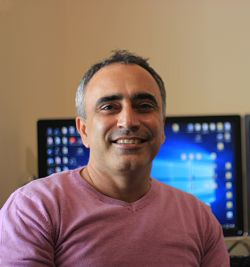
Marios Avraamides
University of Cyprus
Marios Avraamides, Ph.D. is Professor of Cognitive Psychology at the Department of Psychology, University of Cyprus and the Director of the Experimental Psychology Lab. His primary research interest focus on spatial memory and navigation. He is particularly interested in investigating how people encode and maintain in memory information about the locations of objects in their environment and how they use such information to carry out tasks such as maintaining orientation and navigating to previously seen locations etc.
University of Jyväskylä (JYU)

Paavo Leppänen
University of Jyväskylä
Paavo H.T. Leppänen, Ph.D., Vice-Dean (research) of the Faculty of Education and Psychology, is Professor of psychology and dyslexia research at the Department of Psychology at University of Jyväskylä (JYU), the head of the EEG and behavioral cognitive psychology laboratories of Department of Psychology (JYU). He has long experience in the research of learning disorders, especially reading and reading difficulties and related cognitive risk factors using both brain event-related potential (ERP) and behavioral research methods with infant, child and adult populations. He currently conducts and directs research in the field of developmental cognitive neuroscience using MEG and EEG techniques, and those combined with eye-tracking methodology. His research themes include digital and Internet reading (with web-based, behavioral, eye-tracking and brain response measures), dyslexia, language difficulties, attentional problems, and problems in foreign/ second language learning, their risk factors, interventions, and neurocognitive processes of reading.

Minna Torppa
University of Jyväskylä
Minna Torppa, Ph.D. is Associate Professor at the Department of Teacher Education, University of Jyväskylä in Finland. Her research interests are in the fields of educational and developmental psychology focusing on learning difficulties, cognitive development, reading, and math development. Minna is interested in the interaction of risk and protective factors within individuals and in their environment at different phases of life as well as the developmental associations of learning, motivation and well-being. Longitudinal quantitative methodology is an additional interest of hers.

Mikko Aro
University of Jyväskylä
Mikko Aro, Ph.D. is Professor of Special Education at the Department of Education, University of Jyväskylä in Finland. Aro is interested in development of literacy, math and self-regulation, as well as specific learning disabilities and their comorbidity. His research aims at understanding the cognitive background of typical and atypical skill development as well as the role of motivational and emotional factors affecting the development, with the goal of developing instructional practices and intervention methods.
Research Center for Natural Sciences – Hungarian Academy of Sciences (RCNS-HAS)
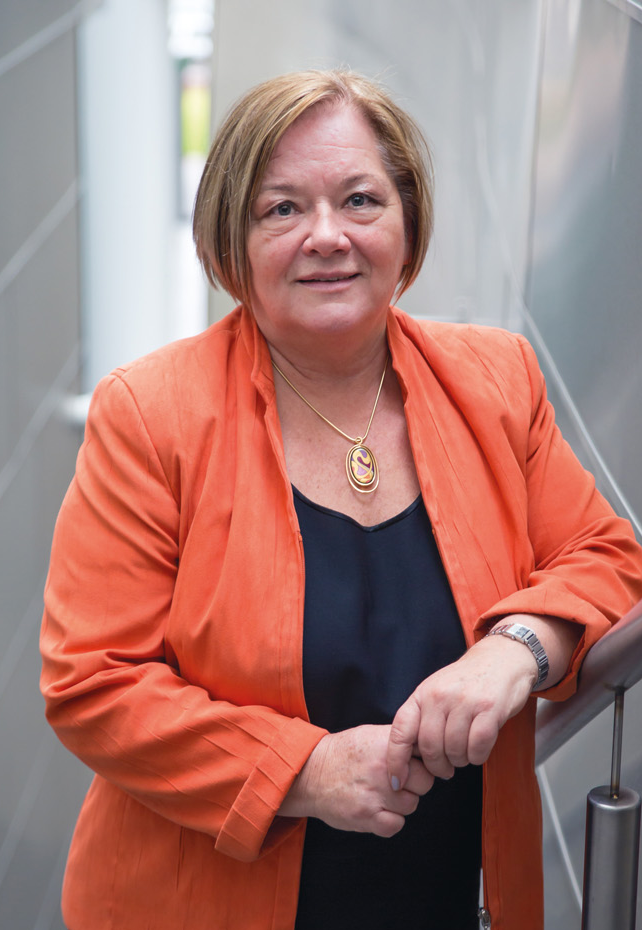
Valéria Csépe
Research Center for Natural Sciences- Hungarian Academy of Sciences
Valéria Csépe, Ph.D. is research Professor at the Research Centre of Natural Sciences (RCNS) of the Hungarian Academy of Sciences (HAS), Professor of Cognitive Psychology and Neuroscience (Technical University of Budapest, University of Pannonia), and member of the Hungarian Academy of Sciences and the Academia Europaea. Her research focuses on the behavioral and brain correlates of typical and atypical cognitive development from infancy to adulthood. The research group of Neurocognitive Development founded by her at the Brain Imaging Centre of RCNS HAS, investigates brain correlates related to the development of spoken and sign language, reading acquisition and disorders, spatial navigation, music as well as executive functions and probabilistic learning with various brain and behavior methods. She served as deputy secretary General of the Hungarian Academy of Sciences, elected for two terms (2008–2014), being the first female in such a high position there. Between 2012 and 2018 she worked for the strategic committee of the International Council of Science (ICSU) as elected member and took part in the preparatory works of the International Science Council (merger of ICSU and ISSC). She is president, appointed in 2016 and 2018, of the Hungarian High Education Accreditation Committee. As of 2017 she is principal investigator of the national curriculum redesign and implementation EU project in Hungary, member of the Education 2030 focus group as well as invited expert of The Research Precariat Scoping Group of the OECD.

Ferenc Honbolygó
Research Center for Natural Sciences- Hungarian Academy of Sciences
Ferenc Honbolygó, Ph.D. is a Cognitive Psychologist working as Senior Researcher at the Research Centre for Natural Sciences, Hungarian Academy of Sciences in Budapest, Hungary. His research interests include the neural basis of auditory perception, speech, language and music, and the development and developmental disorders of these cognitive abilities. In order to study the brain functions related to these abilities, he is using the method of EEG, even-related brain potentials, and fMRI.
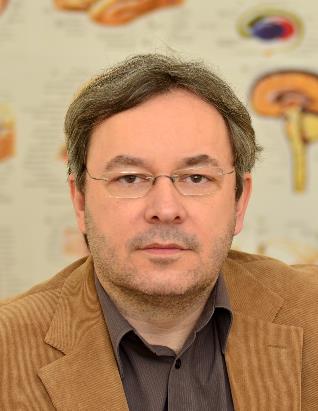
Zoltán Vidnyánszky
Research Center for Natural Sciences- Hungarian Academy of Sciences
Zoltán Vidnyánszky, Ph.D., D.Sc., is Professor of Neuroscience and the Head of the Brain Imaging Centre at the Research Centre for Natural Sciences, Hungarian Academy of Sciences in Budapest, Hungary. He is interested in development of artificial intelligence powered MRI and EEG data analysis techniques and their application in basic, clinical and translational neuroimaging. His major research objectives include uncovering the neural basis of natural reading and dyslexia.
Université Catholique de Louvain (UCL)

Olivier Luminet
Université Catholique de Louvain
Olivier Luminet, Ph.D. is Full Professor at the Université catholique de Louvain and Associate Professor at the Université libre de Bruxelles in Belgium. He is also Research Director at the Belgian Fund for Scientific Research (FRS-FNRS) and the current president of the Belgian Association for Psychological Sciences (BAPS). His research expertise and interests are in Personality, health, and emotion regulation (including alexithymia) and Emotions and collective memory (including flashbulb memories).
Lab website: https://sites.google.com/site/illuminettilab/home

Magali Lahaye
Université Catholique de Louvain
Magali Lahaye, Ph.D. is a clinical psychologist in the Department of Pediatric Hematology and Oncology of cliniques universitaires Saint-Luc in Belgium. She is invited professor at the Université catholique de Louvain. Her research expertise and interests are in pediatric psychology and in emotions in children and adolescents.
University of Edinburgh (UOE)

Bonnie Auyeung
University of Edinburgh
Bonnie Auyeung, Ph.D. is Reader and Chancellor’s Fellow at the School of Philosophy, Psychology and Language Sciences at University of Edinburgh where her work is focused around two central themes: 1) the role of prenatal factors on psychological and neural postnatal development and 2) interventions to alleviate the symptoms of developmental difficulties. Prior to her current role, Bonnie worked at the Autism Research Centre at the University of Cambridge where she remains Director of Psychoneuroendocrinology. Before joining Cambridge, Bonnie was a graduate researcher at the University of California (Los Angeles). Her research took place through the Early Childhood Partial Hospitalization Program at the UCLA Neuropsychiatric Institute and focused on development of attention measures for young children. Her research interests focus on Early child development (social and cognitive development), Developmental Disorders, Autism, ADHD, Epilepsy, neural development, sex differences, early deprivation, prenatal development and adolescent development.
University of Crete (UOC)

Ioannis Tsaousis
University of Crete
Ioannis Tsaousis, Ph.D. is Professor in Psychometrics at University of Crete – Department of Psychology. His research interests include psychometric theory, test development, and theoretical as well as the empirical measurement of individual differences (i.e. personality and intelligence). The corollary of this research activity is the development and standardization of more than 20 psychometric instruments in Greek and English Language. He is author and co-author of numerous scientific papers in the field of psychology while he serves as reviewer in many scientific peer-reviewed journals in the field of psychometrics. He is also member of the editorial board of several prestigious international scientific journals including the International Journal of Testing, publication of the International Test Commission (ITC), Frontiers in Psychology: Quantitative Psychology and Measurement, European Journal of Personality and International Journal of election and Assessment. Since 2012, he is visiting expert on test validation for the Kingdom of Saudi Arabia (National Center for Assessment in Higher Education).

Panagiota Dimitropoulou
University of Crete
Panagiota Dimitropoulou, Ph.D is Assistant Professor in Educational Psychology, at the Department of Psychology of the University of Crete, in Greece since 2017. Her research interests include issues relevant to current trends in school and educational psychology, such as mental health promotion, development and implementation of evidence-based intervention programs in the school community, motivation, academic emotions, psychoemotional adjustment of children and adolescents with emotional, behavioral and learning difficulties, effective and resilient schools, provision of mental health services with the use of technology (e-mental health) and cyberbullying.
University of Athens (UOA)
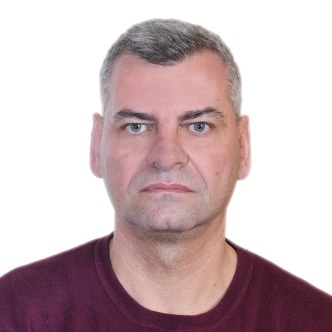
Georgios Sideridis
University of Athens
Georgios Sideridis, Ph.D. is Professor of Educational Psychology at the National and Kapodistrian University of Athens. His research interests are in the areas of psychometrics and the assessment and diagnosis of students with learning disabilities.
Silversky3d VR Technologies Ltd (SLVS)

Kleanthis Neokleous
Silversky3D Virtual Reality Technologies Ltd
Kleanthis Neokleous, Ph.D is the cofounder and Director of Product Development at Silversky3D Virtual Reality Technologies Ltd in Cyprus. He has worked as a postdoctoral scientist at the Department of Psychology of the University of Cyprus. Kleanthis has extensive expertise in the development of content for Virtual Reality and the application of computational intelligence methods. He has participated in two ERC Proof of Concept projects that involved the design of virtual environments for training applications and has supervised the development of several commercial virtual reality applications.
Niilo Mäki Foundation (NMF)
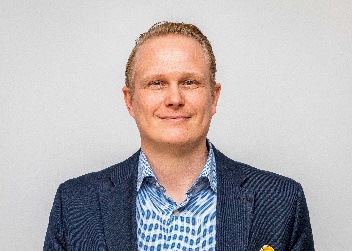
Juha-Matti Latvala
Niilo Mäki Foundation
Juha-Matti Latvala, Ph.D. is an Executive Director at Niilo Mäki Institute in Finland (http://www.nmi.fi). He has long experience in leading development and research projects (especially related to educational technology). His research interests focus on learning games and interventions (e.g. GraphoLearn -environment), collaboration between home and school, technology in education and learning.
Regionaal Instituut voor Dyslexie B.V. (RID)

Jurgen Tijms
Regionaal Instituut voor Dyslexie B.V. (RID)
Jurgen Tijms, Ph.D. is senior researcher at RID, and co-director of Rudolf Berlin Center at the University of Amsterdam (Dept. of Developmental Psychology). His research interests include the neurocognitive underpinnings of reading and mathematical disorders, (early) markers of learning disorders, and research on the mechanisms of change and the effectiveness of interventions for children with learning disorders. He has a special interest in integrating research on learning disabilities with clinical practice, and on the use of serious game principles in assessment and intervention of learning disorders.
Partners
Research Institute at Nationwide Children’s Hospital at the Ohio State University (NCH)

Christopher Bartlett
Research Institute at Nationwide Children’s Hospital at the Ohio State University
Christopher Bartlett, Ph.D. is Associate Professor of Pediatrics and Mathematical Medicine at the Research Institute at Nationwide Children’s Hospital at the The Ohio State University, in USA. His long-term goal is to understand the molecular neurobiology of human language. However, moreso than any other cognitive neuroscience topic, the neurobiology of language is quite resistant to use of animal models except in extremely circumscribed ways. Christopher’s approach is to use “forward genetics” whereby we map language and related traits into the human genome in language impaired patient and family studies using a mix of statistics and genomics. This work entails three levels of basic research and experimentation that feed into the larger project. 1) Statistical genetics research where we develop the statistical methods necessary to directly model and thereby answer our specific research questions. This work involves both analytical and computational methods. 2) Molecular genetic methods and assay development to generate the raw data used in our analyses. 3) Studies of gene expression in the human brain using methods that are similar to those for mapping cognitive traits, but these research questions involve finding directly functional genomic elements that are active in the human brain, such polymorphisms are good candidates biomarkers and mediators of cognitive performance.
Brain Products (BP)

Christina Florence Lavallée
Brain Products
Christina Florence Lavallée, Ph.D. is a Strategic Product Manager at Brain Products in Germany since 2018. She began working as a scientific consultant in the Strategic Marketing department at Brain Products in 2017. She is responsible for the planned training of the ESRs in the application of EEG-systems in the research context of neurodevelopmental dysfunctions with a focus on paediatrics.
Mind’s Eye Research Ltd., Sussex Innovation Center, University of Sussex (MER/SRR)

Sam Hutton
Mind’s Eye Research Ltd., Sussex Innovation Center, University of Sussex (MER/SRR)
Sam Hutton, Ph.D. is Director of Mind’s Eye Research, a consultancy that provides training and advice to users of EyeLink eye trackers on behalf of SR Research Ltd. He has over 20 years of experience in eye tracking research, both within academia and on behalf of SR Research and their customers. He has published eye tracking research in a wide range of fields, from oculomotor abnormalities in schizophrenia to the role of gaze cues in magazine advertisements. Over the last 5 years he has given eye tracking workshops at Universities around the world, including specialized workshops on eye tracking in language research and eye tracking infants and children.
SUVAG Polyclinic Zagreb (SUVAG)

Maja Kelić
SUVAG Polyclinic Zagreb
Maja Kelić, Ph.D., Postdoctoral Research Associate at University of Rijeka, Croatia; speech and language pathologist especially interested in development of phonology and phonological deficits in language and reading disorder. She gained her PhD in Language and Cognitive Neuroscience from the University of Zagreb in 2017. During working on PhD thesis, she furthered her education at Brain imaging center at Research center for natural sciences of Hungarian academy of sciences, University of Graz, Bristol Speech and Language Therapy Research Unit, Max Planck Institute for Human Cognitive and Brain Sciences in Leipzig, Mayo Clinic in Rochester, USA and University of Vienna. She is a member of board and lecturer of Croatian Dyslexia Association.
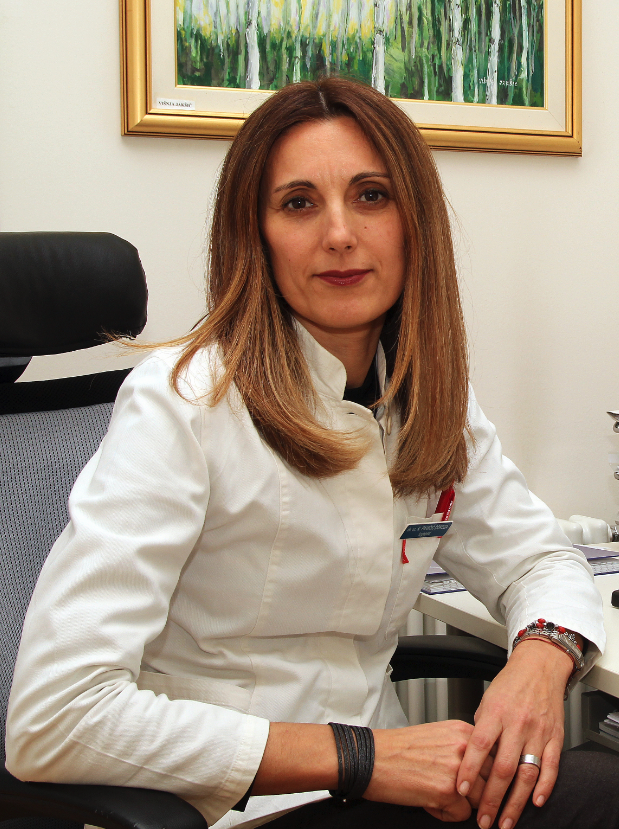
Katarina Pavičić Dokoza
SUVAG Polyclinic Zagreb
Katarina Pavicic Dokoza, Ph.D. is Assistant Professor and Director of Polyclinic for the Rehabilitation of Listening and Speech SUVAG Zagreb. She has worked as an associate of Department of Psychology of the University of Zagreb, Croatia since 2010. Since 2018 she has worked as an associate of Department of Speech and Language Pathology, University of Mostar, Bosnia and Herzegovina. She has an extensive expertise in the field of speech and language rehabilitation that involves use of electroacoustic equipment during diagnostic and rehabilitation procedures.
Cyprus Psychologists’ Association (CYPSA)
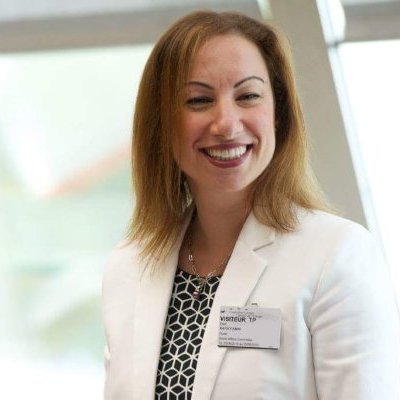
Eleni Karayianni
Cyprus Psychologists’ Association
Eleni Karayianni, Ph.D. is the President of the Cyprus Psychologists’ Association. She is a Licensed Clinical Psychologist with the Cyprus Psychologists’ Registration Board. Her main research interests relate to traumatic experiences, program development and evaluation, and work-related issues (e.g., stress). Her research activity has received funding by national and international agencies. She has been working as Clinical Training Coordinator at the Department of Psychology, University of Cyprus since 2008. Since 2015, she has been acting Director of the University of Cyprus Mental Health Center. She is also a consultant on several national projects (e.g., Ministry of Education, “Hope for Children” UNCRC Policy Center) pertaining to child protection and promoting the adoption of child-friendly approaches based on best practices. At the international level, she is an elected member of the Executive Council of the European Federation of Psychologists’ Associations (EFPA, 2015 – 2019), and she collaborates with the Council of Europe on issues pertaining to children’s rights.
University of Amsterdam (UvA)

Reinout Wiers
University of Amsterdam
Reinout Wiers, Ph.D. is full professor of developmental psychopathology at the University of Amsterdam, and head of the Department of Developmental Psychology. His main research focus is on assessing and changing implicit cognitive processes in addiction. The goal of his research group is to increase understanding into the (neuro-) cognitive processes involved in the etiology of addiction and related disorders and to use this knowledge to develop interventions.
University of Pannonia (UoP)

Judit Navracsics
University of Pannonia
Judit Navracsics, Ph.D. is the Dean of the Faculty of Modern Philology and Social Sciences at the University of Pannonia. She is also Professor of Applied Linguistics and the Head of the Institute for Hungarian and Applied Linguistics and the Chair of the Multilingualism Doctoral School. Her research interests focus on Infant bi- and multilingualism, early third language acquisition, the bilingual mental lexicon, second language acquisition, multilingual processing and EEG correlates of bilingual visual word recognition and bilingual sentence comprehension.
Early Stage Researchers
University of Cyprus, Cyprus
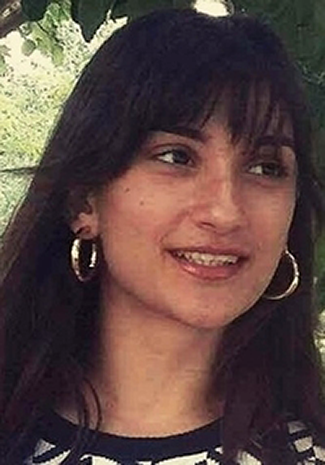
Evgenia-Peristera Kouki
School of Psychology, Aristotle University of Thessaloniki, Greece
Department of Psychology, University of Cyprus, Nicosia, Cyprus
ESR Individual Project No.: ESR3
Evgenia-Peristera Kouki is a PhD candidate in the Department of Psychology of the University of Cyprus. Her theoretical background includes BA in Psychology from the Aristotle University of Thessaloniki (with concentration in Cognitive and Experimental Psychology), and MSc in Clinical Neuropsychology. Her expertise involves neuropsychological assessment and rehabilitation, and she has been involved in support group activities for neurological patients from 2017. Her research interests involve neurodevelopmental disorders and their impact on the individuals’ cognitive and academic performance.
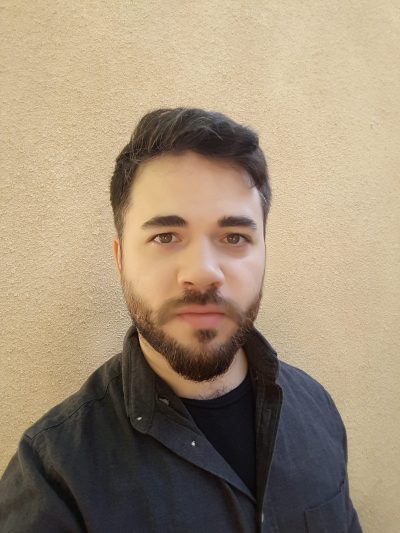
Markos Apostolakis
Centre for Applied Neuroscience, University of Cyprus
ESR Individual Project No.: ESR5
Markos is a PhD candidate at the Department of Psychology, University of Cyprus. He obtained his bachelor degree in Philosophy, Education and Psychology from the National and Kapodistrian University of Athens, in Greece. After his military service, he moved in the UK to complete an MSc program in Psychology at the University of Essex. He continued with a second master degree in Cognitive Science at the Ruhr-University of Bochum, in Germany. His current research interests lie in the field of emotion regulation and psychophysiology and how psychophysiological measurements can be used to track and predict the development of essential emotion regulation abilities.

Georgia Soursou
Department of Psychology, University of Cyprus, Nicosia, Cyprus
ESR Individual Project No.: ESR6
Georgia Soursou is a Marie Skłodowska-Curie PhD Fellow at University of Cyprus and an Early Stage Researcher at Center for Applied Neuroscience. She studied Computer Science and Biomedical Informatics in the University of Thessaly, where she developed an interest in neurodegenerative diseases and brain research. After completion of her Bachelor studies, she spent a year as a Research Associate in Neuroinformatics, supervised by Dr. Athanasios Alexiou. Then she enrolled in the Master program in Bioinformatics offered by the University of Crete, School of Medicine. For her Master thesis, she had the opportunity to join the Poirazi lab, where she developed computer skills to investigate dendritic computation. Her Master’s thesis was about “Anti-coincidence detection in the dendrites of human L2/3 neocortical neurons”. There, she became interested in what our cortex can compute and how this affects our behavior. In her current ESR project, she is trying to link neurobiology with behavior.
Jyväskylä University, Finland

Daria Khanolainen
University of Jyväskylä, Finland
ESR Individual Project No.: ESR2
Daria has always been involved in the field of education. Having graduated from Karelian State Pedagogical Academy in 2010 she went on to serve as an art teacher in a comprehensive school in Petrozavodsk, Russia. In 2015-2016 she took a Master’s degree in Education Management at King’s College London. Upon her return to Russia she assumed a role of a research associate at the Institute of Psychology and Education (Kazan Federal University). Daria is currently a PhD student within the European Training Network Neo-PRISM-C at the University of Jyväskylä, Finland.

Ariane Tretow
University of Jyväskylä, Finland
ESR Individual Project No.: ESR8
Ariane is a psychologist holding a Master’s degree in Neurocognitive Psychology awarded by the University of Oldenburg and a Bachelor’s degree in Psychology with focus on clinical psychology of the Medical School Hamburg. Both, her master and bachelor thesis had investigated the effect of transcranial electric stimulation (tACS/tDCS). Apart from brain research, Ariane has worked in the field of Occupational Health and Safety as a research assistant at the James Cook University in Australia, where she gained experience in working in interdisciplinary teams. In addition, she has enjoyed gaining practical experience in a psychosomatic day clinic and stroke rehabilitation unit in Hamburg, Germany. Currently she is a member of the Department of Psychology at the University of Jyväskylä in Finland, pursuing her PhD as part of the NEO Prism C project.

Lisa Hintermeier
University of Jyväskylä, Finland
ESR Individual Project No.: ESR14
After completing my Bachelor’s degree in German Studies at the TU Dresden, I decided to deepen my knowledge in Linguistics within the M.Sc. Linguistics program at the University of Potsdam. During this time I gained first research experiences while working as a student research assistant at the Laboratory for Oral Language Acquisition and the Potsdam Research Institute for Multilingualism. In the NEO-PRISM-C project, I will investigate the relevance of sublexical processing in reading at various stages of typical and compromised reading development.
Research Center for Natural Sciences- Hungarian Academy of Sciences, Hungary
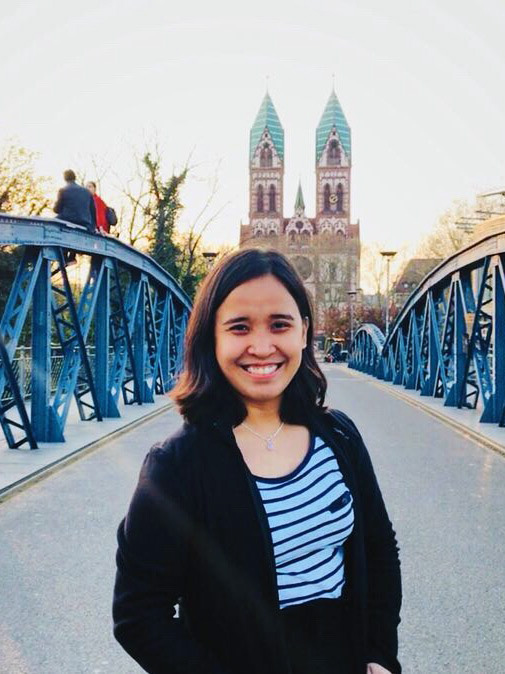
Kathleen Kay Amora
Research Center for Natural Sciences- Hungarian Academy of Sciences, Hungary
ESR Individual Project No.: ESR9
Kathleen has been fascinated in studying the theoretical foundations and clinical applications related to neurodevelopmental disorders since 2009. After she finished her Bachelor’s degree in Speech Pathology (Cum Laude) at the University of the Philippines-Manila in 2013, she worked with children with diverse developmental disorders (autism, cerebral palsy, SLI, apraxia) as a speech-language therapist. In 2017, she got the Erasmus Mundus Joint Master’s Degree (EMJMD) Scholarship to pursue her European Master in Clinical Linguistics (EMCL+) in Europe (at the University of Groningen, The Netherlands; University of Potsdam, Germany and University of Eastern Finland, Finland) and she finished it excellently this August 2019. During her Master’s program, she got more interested in applying experimental research methods in studying language acquisition and language disorders, particularly in dyslexia. In the NEO-PRISM-C project, Kathleen will investigate the behavioral and brain correlates of reading and spelling and eventually develop an educational intervention for spelling disorders.
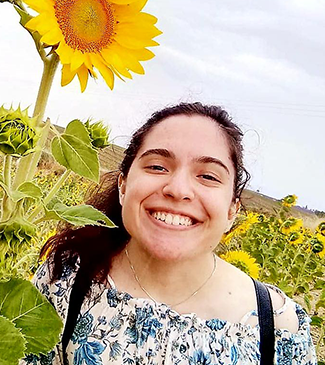
Maria Ioanna Zavogianni
Research Center for Natural Sciences, Budapest, Hungary
ESR Individual Project No.: ESR10
Maria Ioanna Zavogianni obtained her BA degree in Linguistics from the National and Kapodistrian University of Athens, Greece in 2017 and her diploma in music studies. She also holds the European Joint Masters (MSc) in Clinical Linguistics (EMCL+) from the University of Groningen, the Netherlands. During her masters she worked on projects regarding the clinical application of music during awake brain surgery and the investigation of the semantic association of music and language using eye tracking techniques. In the NEO-PRISM-C Project, she is supervised by Prof. Dr. Ferenc Honbolygó (RCNS) and Dr. Maja Kelic (SUVAG Polyclinic, Zagreb); the project focuses on how music can be effectively applied as a therapeutic intervention to children with dyslexia. Maria Ioanna’s research interests are in the fields of developmental language disorders, music therapy, Event-Related Potentials (ERPs), music neuroscience and music cognition and in general, the investigation of any possible interface between language and music.
Université Catholique de Louvain, Belgium
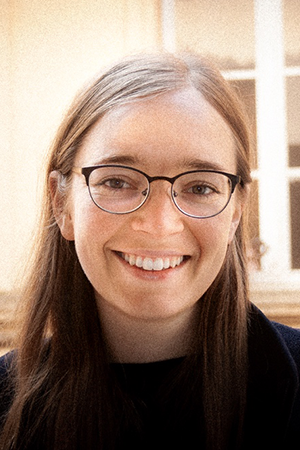
Mareike Kaemmerer
Psychological Sciences Research Institute (IPSY), Université catholique de Louvain (UCL)
Working on ESR Individual Project No.: ESR11 since 28/09/2020
Mareike is a psychologist and researcher in Developmental Psychology, who graduated from Aix-Marseille University (France). She has worked as a Research Assistant for the French National Centre for Scientific Research (CNRS, Marseille) and the Lab for Cognitive and Affective Sciences (SCALab) at the University of Lille (France). She has investigated affect dynamics and the use of emotion regulation strategies in mindfulness interventions and physical activity, using experience-sampling methods. Another research interest concerns individual differences in the enjoyment of sad music. Mareike has also worked on cognitive evaluations and music-therapy-based interventions for children with neurodevelopmental disorders. In the Neo-PRISM-C-project, Mareike is a PhD student at UCLouvain (Belgium). Her contribution consists of the investigation of the role played by emotional and cognitive processes in psychological interventions for children with chronic health conditions. She also works on the development and implementation of evidence-based interventions to improve those processes and thus to enhance psychological and physical health.
Past ESR
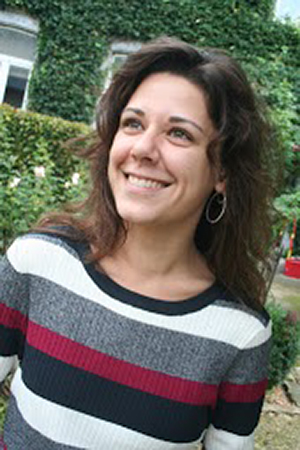
Sara Silvente I Font
Psychological Sciences Research Institute (IPSY), Université catholique de Louvain (UCL)
Worked on ESR Individual Project No.: ESR11 from 01/09/2019 to 30/06/2020
Sara obtained her BA in Language and Literature at the University of Barcelona and her MA in Discourse Studies at the Pompeu Fabra University (Barcelona, Spain), where she obtained a scholarship to work as an assistant professor. Then, she worked for three years as a research assistant in a longitudinal study on the development of writing skills in children from vulnerable and non-vulnerable populations (Universitat Autònoma de Barcelona). Here, Sara’s research work mainly focused on the cognitive processes underlying writing performance and language control abilities, and she was especially interested in children with various neurodevelopmental disorders. This is why she enrolled in the Psychology track of the MA in Cognitive Science and Language (Universitat de Barcelona). Currently, she is a PhD student at the Université catholique de Louvain (Belgium), and her contribution to the NEO-PRISM-C project will consist on the development and implementation of evidence-based interventions for treating the emotional and cognitive competences in children with medical conditions.
University of Edinburgh, United Kingdom

Janell Kwok
University of Edinburgh; School of Philosophy, Psychology and Language Sciences
ESR Individual Project No.: ESR1
Janell is a PhD candidate (Psychology) at the University of Edinburgh, Scotland. Her general research interests include early-life intervention, cognitive rehabilitation, neurodevelopment and psychopathology. She is especially interested in developing technical expertise in structural and functional neuroimaging, statistical risk models and predictive analytics. Her work experience includes developing research tools for validation, doing clinical assessments and research in a specialist neuroscience hospital, conducting cognitive assessments in children and youths, and teaching tertiary-level psychology. She holds a Masters of Science in Clinical Neuropsychology (Netherlands), and a Bachelor of Arts, double major in Psychology and Communication (USA). She is a strong advocate of international and multidisciplinary collaboration to improve methodological practices across different specialist fields.
University of Crete, Greece
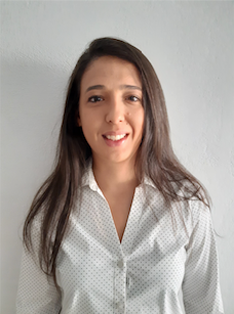
Iouliani Pachiti
University of Crete, Greece
ESR Individual Project No.: ESR12
Iouliani Pachiti is a Licensed School Psychologist in Cyprus. She has completed a three-year applied master’s program (MA) in School Psychology (2014) at the University of Cyprus, which has been accredited by the International School Psychology Association (ISPA). As part of her master’s program, she completed 1500 hours of supervised clinical practicum in school settings in Cyprus. She also completed a Bachelor’s degree in Psychology at the same university (2010).
At the present, she is a doctoral student in Psychology at the University of Crete and her doctoral dissertation focuses on the determinants of treatment response to state-of-the-art interventions for attention deficits. Her research interests also include the adaptation and design of psychometric tests for children (eg. language skills test).
University of Athens, Greece
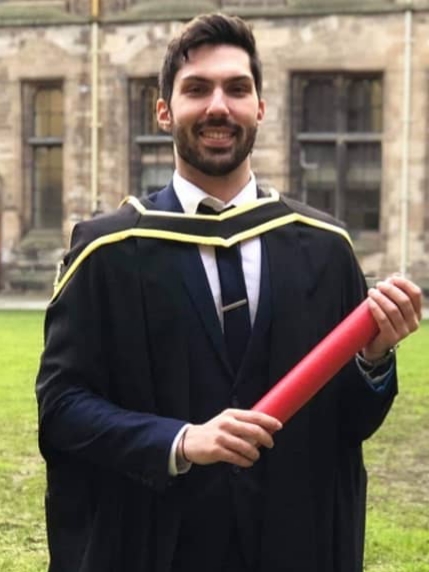
Leonidas Bourikas
National and Kapodistrian University of Athens
Department of Primary Education/School of primary education
ESR Individual Project No.: ESR4
Leonidas Bourikas holds a bachelor’s degree in Psychology by university of Crete and a master’s degree in Applied Neuropsychology by University of Glasgow. He has worked as a Research data coordinator at North Bristol NHS trust under the Adult Hydrocephalus Clinical Research Network (AHCRN/University of Utah, Paediatrics dpt.) and the local memory clinic as an assistant clinician in charge for the cognitive assessment of adult patients with Hydrocephalus. Moreover, he has a keen interest in cognitive neurosciences, data analytics, test development and modern psychometrics as in his past research projects he has developed a Neuroticism Occupational Scale and culturally validated cognitive screening tests for dementia. Currently, as a PhD candidate at the department of primary education, National and Kapodistrian university of Athens, he focuses in developing novel assessments of reading and spelling with the help of computerised adaptive algorithms for the purpose of accommodating children with attentional deficits and validly assess their skills and competencies.
SilverSky, Cyprus

Christos Gkoumas
Silversky 3D Virtual Reality Technologies LTD
ESR Individual Project No.: ESR15
Christos Gkoumas is a PhD Candidate at the Department of Psychology, University of Cyprus and a Marie Skłodowska-Curie PhD Fellow at Silversky 3D Virtual Reality Technologies LTD. He holds a bachelor’s degree in Psychology (2013) from Panteion University of Athens and an M.Sc. in Cognitive Neuroscience (2016) from the Medical School of Athens/ Montreal Neurological Institute, McGill University. His research interests lie at the intersection of human cognitive neuroscience, computational modelling, neuroimaging and technology. Over the last years, he has developed various virtual reality applications for research and rehabilitation purposes targeting typically and atypically developed pediatric and adult populations. His main research focus is to develop novel research paradigms to examine cognitive functions in naturalistic virtual environments in combination with imaging and physiological measurements. He is also interested in translating scientific research from the lab to the marketplace.
Niilo Mäki Foundation, Finland
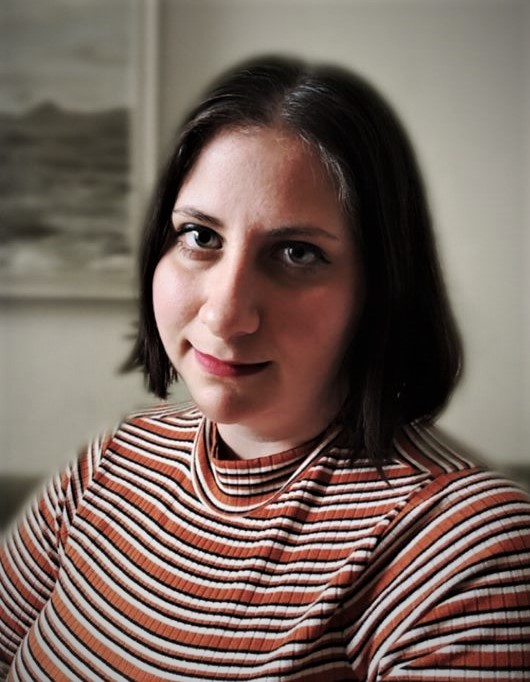
Georgia Gerike
University of Jyväskylä (JYU) and Niilo Mäki Foundation, Finland
ESR Individual Project No.: ESR7
I am an early stage researcher, with an interdisciplinary background across cognitive science and education. I graduated from University of Edinburgh in 2019 with an M.Sc. in Developmental Cognitive Science, which I began after 4 years of working as an educator and administrator in Spain and the USA. This interest began as undergraduate at Hampshire College, where I completed a B.A in a self-designed concentration of Neuroscience and Education and received several grants to conduct laboratory research in developmental cognitive science as well as mental health advocacy and policy making. My current research interests are broadly focused on the relationship between developmental processes and the socio-environment. I am particularly interested in how different processes and systems overlap in both typical and atypical development, with a focus on cognitive control. I am also interested in how research can be applied to develop targeted mental health and educational interventions.
Regionaal Instituut voor Dyslexie B.V., Netherlands

Cara Verwimp
Regionaal Instituut voor Dyslexie B.V., Netherlands, University of Amsterdam (UvA)
ESR Individual Project No.: ESR13
Cara Verwimp, MSc, graduated two years ago as a clinical child psychologist from KU Leuven, Belgium, and decided to extend her studies with an extra master in Theory and Research. During her research internship in the DYSCO research group at KU Leuven (Dyslexia Research Collaboration between Parenting and Special Education and Experimental Oto-rhino-laryngology), she investigated pre-literacy heterogeneity in Dutch-speaking kindergartners. Currently she is employed at the University of Amsterdam and Regionaal Instituut voor Dyslexie (RID) as an Early Stage Researcher and the goal of her research is to provide more insight in the multidimensional etiology in developmental dyslexia and to further investigate the development of letter-speech sound correspondences, aiming for better, individualized interventions.
